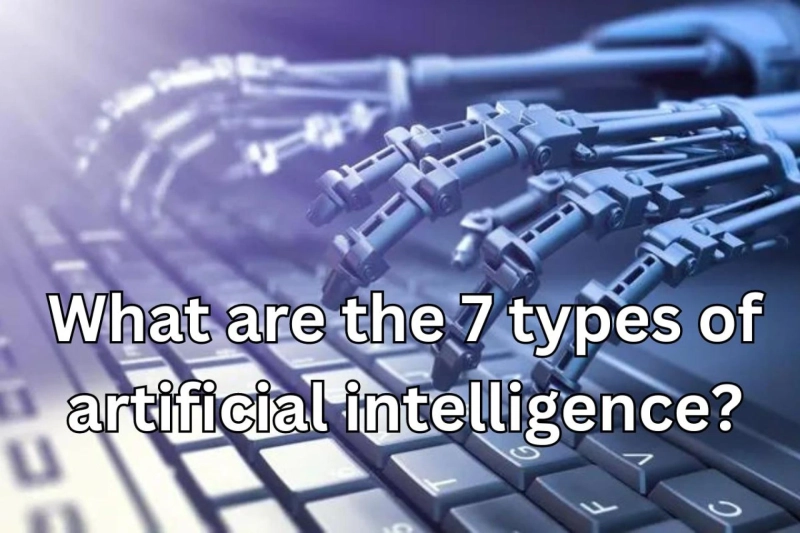Introduction to the AI Spectrum: From Narrow to General Intelligence
Artificial Intelligence (AI) is a dynamic field that encompasses a spectrum of capabilities, ranging from specialized tasks to human-like cognitive abilities. In this exploration, we delve into the seven types of artificial intelligence, each representing a unique facet of the evolving AI landscape.
Narrow AI or Weak AI: Specialized Task Mastery
Narrow AI, also known as Weak AI, is designed to excel in specific tasks. These AI systems are tailored for a particular function, such as language translation, image recognition, or playing chess. While proficient in their designated domains, Narrow AI lacks the broad cognitive abilities seen in human intelligence.
General AI or Strong AI: The Holy Grail of Artificial Intelligence
General AI is the envisioned pinnacle of artificial intelligence, mirroring the cognitive abilities of humans across a broad range of tasks. This type of AI can understand, learn, and apply knowledge in diverse contexts. Achieving General AI remains a long-term goal and a subject of intense research and speculation within the AI community.
Machine Learning: Teaching Machines to Learn
Machine Learning (ML) is a subset of AI that empowers machines to learn from data and improve their performance over time. It includes various techniques such as supervised learning, unsupervised learning, and reinforcement learning. ML algorithms enable systems to make predictions, identify patterns, and adapt to changing circumstances without explicit programming.
Natural Language Processing (NLP): Bridging the Gap Between Humans and Machines
NLP focuses on enabling machines to understand, interpret, and generate human language. Chatbots, language translation services, and sentiment analysis are examples of NLP applications. This type of AI is crucial for enhancing human-computer interaction and communication.
Computer Vision: Teaching Machines to See
Computer Vision empowers machines to interpret and make decisions based on visual data. From facial recognition and object detection to medical image analysis, computer vision plays a pivotal role in applications where visual information is key. This type of AI enables machines to perceive and understand the visual world.
Expert Systems: Knowledge in Code
Expert Systems leverage knowledge engineering to mimic human expertise in specific domains. These AI systems integrate rule-based reasoning to solve complex problems. Expert systems are used in fields such as medicine, finance, and engineering, providing intelligent decision support based on accumulated knowledge.
Autonomous AI: Machines that Make Decisions
Autonomous AI refers to systems capable of making decisions and taking actions without human intervention. Autonomous vehicles, drones, and robotic systems exemplify this type of AI. These systems navigate and operate in dynamic environments, showcasing the potential for AI to impact various industries.
Conclusion
As we unravel the seven types of artificial intelligence, we witness the vast and intricate tapestry that defines the AI landscape. From specialized task mastery to the pursuit of General AI, each type contributes to the evolving capabilities of machines. As researchers and engineers continue to push the boundaries of AI, the future promises even more innovations that will shape our interaction with intelligent systems.
FAQs about artificial intelligence
Who is the father of AI?
Alan Turing: While there isn't a single "father of AI," Alan Turing is often considered a key figure in the early conceptualization of artificial intelligence.What is the main problem of AI?
Bias and Fairness: One of the main problems in AI is the presence of bias in algorithms, leading to unfair or discriminatory outcomes, often reflecting the biases present in the data used for training.What are the 4 main types of AI?
Reactive Machines: Limited to specific tasks and don't possess memory or learning capabilities.Limited Memory: Can learn from historical data to some extent, like in self-driving cars.Theory of Mind: Hypothetical AI with the ability to understand human emotions, beliefs, intentions, and consciousness.Self-aware AI: Currently theoretical, representing machines that have self-awareness and understanding of their own existence.Also read
data science colleges in mumbai
data science training in bangalore



